Mercy Seminar 2024
Truth, enlightenment & compassion

 With Father David Peck
With Father David Peck
and Professor Randall Zachman
Entirely on Zoom
The Mercy Seminar explores a theme related to the understanding of mercy in various religious traditions in order to reflect on the relationship of human life to ultimate reality, including themes of illusion, suffering, compassion and prayer.
For 2024, Prof. Randall Zachman and Fr. David Peck will explore Buddhist and Christian spirituality using classical spiritual texts like the Tao Te Ching from China and selections from an authoritative manual on spiritual formation from the Zen Buddhist tradition in Japan. The guiding question for the series will be, “How can the insights of Christianity, when compared to other faith traditions, help me to experience my own faith and be God’s mercy in the world?”
Now in its fifth year, the Mercy Seminar is enjoyed by those who are new to theology and spirituality and bring a “beginners mind” to the study of holy texts and the mystical path that deepens Christian understanding and expands our knowledge of other faith traditions and cultures that we would otherwise never really appreciate. Each of the 3 terms run for 6 consecutive Thursday nights. New participants join each term and the seminar does not presume prior experience or knowledge. It is fully online and is recorded for viewing any time for those who have purchased the term.
Term 1 (February 15 – March 21)
This year Prof. Randall Zachman and Fr. David Peck will explore Buddhist and Christian
spirituality using classical spiritual texts like the Tao Te Ching from China and selections
from an authoritative manual on spiritual formation from the Zen Buddhist tradition in
Japan. The guiding question for the series will be, “How can the insights of Christianity,
when compared to other faith traditions, help me to experience my own faith and be God’s
mercy in the world?”
Now in its fifth year, the Mercy Seminar is enjoyed by those who are new to theology
and spirituality, as well as those who are rich in the exploration of faith traditions that
have helped deepen their prayer lives.
Six consecutive Thursday evenings from 7 – 8:30 PM in Zoom format only.
Each session will be recorded in Zoom and available for viewing for those who have completed their registration.
Cost: $75/term; bundling discounts available
scholarships available; please email Nancy LeVasseur for more information.
Term 1 Readings
Course Readings
Session 1: Reading I.1
Session 2: Reading I.2
Session 3: Reading I.3
Session 4: Reading I.4
Session 5: Reading I.5
Opening Comments
Session 1: Opening Comments I.1
Session 2: Opening Comments I.2
Session 3: Opening Comments I.3
Session 4: Opening Comments I.4
Session 5: Opening Comments I.5
Session 6: Opening Comments I.6
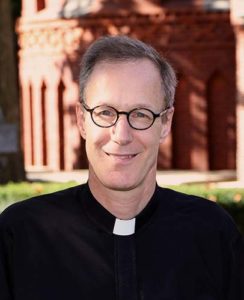
Father David Peck
The Rev. David W. Peck is the twenty-third rector of Saint James. Prior to his arrival in 2008 from the United Kingdom, he served the Archbishop of Canterbury, Rowan Williams, at Lambeth Palace as his Secretary for International Development. In this role he focused on building partnerships with church leaders, UN agencies and international non-governmental organizations in order to provide food and education in post-conflict zones in sub-Saharan Africa.
Born in Indiana, David was educated in the United States and England, earning his Theology and Ministry degrees from Cambridge University and Westcott House.
David’s prior peace building and reconciliation work led him to study in Jerusalem in 2013. There he began a new focus on how the rich theology of mercy could help Jews, Christians and Muslims explore their own and each other’s texts and traditions more deeply.
His work in Africa and the Middle East and his completion of a 30-day Ignatian silent retreat at the Jesuit Center in Wernersville, PA drew him more deeply into the practice of contemplative prayer. Since then he has taught meditation in school, hospital, hospice and prison settings. He lives with his wife Dr. Cordelia Moyse, a church historian, and their daughter.
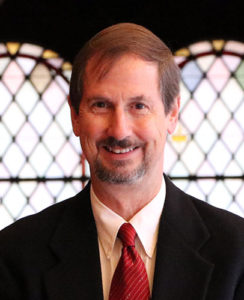
Prof. Randall Zachman
Randall Zachman is Professor Emeritus of Reformation Studies at the University of Notre Dame, where he taught undergraduate and graduate courses in theology for twenty-six years, and is currently an adjunct instructor in theology at Lancaster Theological Seminary. He is a lifelong Episcopalian. Randall received his undergraduate degree in religion at Colgate University, his Master of Divinity at Yale Divinity School, and his PhD at the University of Chicago Divinity School.
He is the author and editor of several books on Martin Luther and John Calvin, and has also published articles and chapters on the theology of Søren Kierkegaard and Karl Barth. He has spent his career teaching the history of Christian theology, including seminars on the Old and New Testaments.
For the past fifteen years, he has been a member of the International Theology Conference at the Shalom Hartman Institute in Jerusalem in which Jewish, Muslim and Christian scholars study and dialogue together. He lives in Lancaster with his wife, The Rev. Dr. Carrie Call, who is the Transitional Conference Minister of the Penn Central Conference of the United Church of Christ. Their son Johnny lives in Austin, Texas.
The Urban Well is a registered trademark of Saint James Episcopal Church.
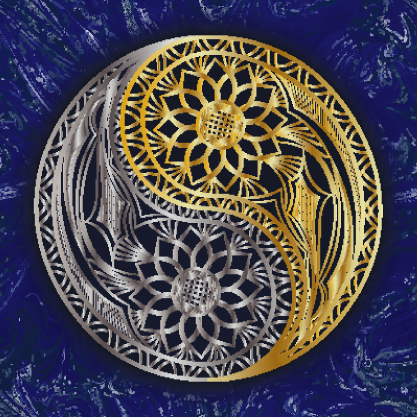 With Father David Peck
With Father David Peck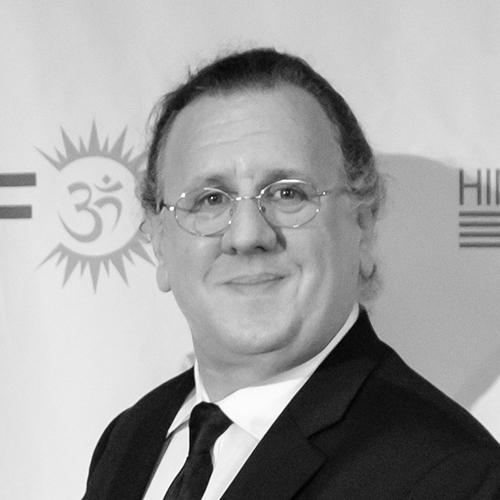
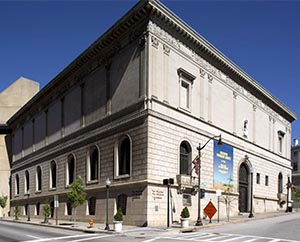 Bus Trip
Bus Trip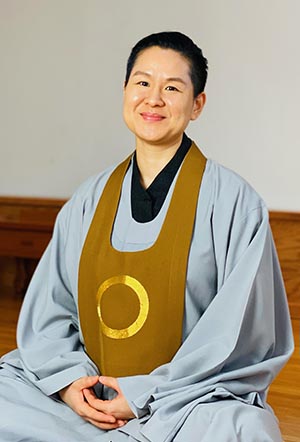 A Retreat with Grace Song: Experience What Buddhism Teaches Christians About Wisdom and Compassion
A Retreat with Grace Song: Experience What Buddhism Teaches Christians About Wisdom and Compassion